 SIX years after it was released, ten of the seventeen tracks on Robbie Williams' seventh studio album are still in high rotation on the fourth incarnation of my itunes. I gotta say, I have a compartmentalised soft spot for Robbie. I find a lot of his early solo catalogue stuff a mix between naff and uninspired 90s kind of corporate pop, but occasionally it was brilliantly done. For me he turned the corner with Sing When You're Winning, and immediately lost me again when he started Swinging with Nicole frigging Kidman, but has since mostly won me over again, even though the masses don't seem to be as up for him as they once were. Robbie for me, is at his best when he makes wonky pop. Unexpected, fun, unpredictable pop that transcends the corporatisation of pop music and lets his genuine talent for writing brilliant lyrics come to the fore. He's got a great voice, and when he's not banging on about aliens or Elvis, his laddiness is pretty god damn charming. He remains one of the only convincing across the board winners of Coffee/Shag, a serious intellectual game which a couple of my besties and I play. We had to invent a third category for him. On Rudebox, Robbie lets rip, and there is a looseness to this recording that he has not ever achieved since. At surface level, the album comes across as Robbie playing with synth pop and stroking himself while he pulls out the witty lines. But this album is more than just a collection of songs that play on pop culture myths. You know, like urban myths that have central pop figures as their subjects. The pairing of The 80's and The 90's are like two distilled memoirs that you simply can't put down. In the space of five minutes Robbie reels off his adolescent achievements ranging from his first sexual and drug encounters, through to some pretty personalised reflections of growing up in 80s England in The 80s. In The 90s he picks up the thread and describes his ascent to boy band stardom and then the spectacular way in which he crashed down from those heights. There is something inherently sad and gripping in these reflections that also shows how skilled Robbie is with writing. Intellect and pop don't often meet, but when they do, like they do here against a melancholic electronic backdrop, the results are pretty astounding. Click on READ MORE to continue the posting.
0 Comments
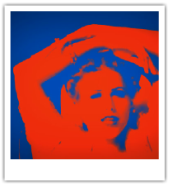 SOPHIE B. arrived in a flurry of breathless press, hype and a little bit of name dropping; David Bowie or Bob Dylan, I can't remember, being a family friend or for whom her mother had been a percussionist. Don't test me on the details, they are not important here. The point was that she came onto the scene with a pedigree. More importantly, she had a stellar debut single that she wrote all by herself: Damn I Wish I Was Your Lover, an instant classic that was, let's be real, one of the greatest songs of the 1990s. Those cheeky munchkins at Slant agree with me. Just. But Sophie was more prodigious musical talent than pop star in the making. She had a way with words, and such a complex musicality that her ability to coo in a poppy way was the red herring in her pop makeup. Although she sang in Madonna's register at times, she bore no other resemblance. Her debut album, Tongues and Tails (1992) offered proof of how she was already on a way more sophisticated plane, which instantly made her a critic's darling; but her sexual ambiguity and bohemian styling made her more difficult to market as anything other than a singer songwriter. While Damn I Wish I Was Your Lover was a heady, hypnotic mix of dirty beats, sexy spoken and sung parts, complete with sapphic references, much of the debut was less textured; more the sound of an urban hippy teenager growing into a singer songwriter. In the hands of Madonna, Right Beside You, the first single from her sophomore effort Whaler, would have been a monster hit; ironic that the vocals on that track often are reminiscent of Madonna. In Sophie's hands, although it was a major pop accomplishment, it was a minor moment for pop lovers. On the other hand, fellow second album track, As I Lay Me Down To Sleep, was one of those radio staples at a time in which we preferred our music a little plaintive, sad, lilting. The mid 1990s were the time of the Cranberries and Prozac, critical elements of mainstream culture that were later proven to offer nothing but a placebo effect. CLICK ON READ MORE TO CONTINUE THE POST... 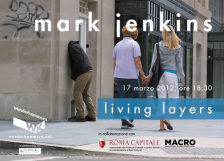 A FRIEND once likened my opening of a gallery in an inner city suburb of Melbourne as being a bit like the wholesale import of culture into the area. Given that he is an urban planner, I thought about the remark somewhat. The said suburb already had a reasonably well developed cultural scene, but I think the particular stretch of the high street I opened was regrettably a bit like the no-man's-land my old tennis coach used to warn me about steering clear of on the court. But we live and we learn, but the high cost of rent in the world's major cities dictates. I live in, let's say, an economically challenged area of Rome, many of whose inhabitants are not known for their sophistication. I particularly hate a lot of the people in the neighbour hood if you want me to be honest. Last night, a new nominee for my Dislike campaign received my vote; the woman who lives on the third floor in the building opposite mine. She routinely clears her table each night, and bats her tablecloth out of her window, letting the debris (including paper serviettes) simply fall to the street (our street) below. She watched with the kind of detatched fascination that most people watch snow falling as the grubby bits of paper simply floated down onto the street. These two analagies came to mind when I got to thinking about one of the things that I actually do appreciate about my area. The Wunderkammern, a groovy little artspace that opened on the otherside of the tracks, about a five minute walk from my place. I've seen a few interesting shows there; not an easy feat in a space that has very limited opening hours; but increasingly, I am growing to love the approach and the program that seems to be unfolding. Click on READ MORE to continue the post. 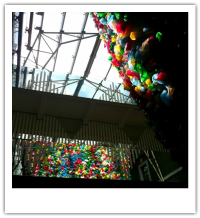 I RECENTLY visited MACRO in Via Nizza for the first time in months. For those not that familiar with Rome, the city is host to a pair of MACRO contemporary art spaces, the Via Reggio Emilia site, and the former slaughterhouse site in Testaccio, which I have written about before. I have to say, I have always prefered the Via Reggio Emilia site, both for its layout, and also for the content of the work that they show. But, this recent visit was easily the most enjoyable and stimulating that I have had there in over two years. For the first time that I can remember, MACRO offered me a combination of technology, innovation, humour and concept, all in equal measure. And there was also a helpful attendant on hand at one point who offered up his assistance in case I wanted to know more about the works I was looking at. Its almost April, and I would imagine that the program was well and truly sealed months ago, but I can't help thinking about MACRO's recent managerial changes that occured last year are already taking effect. And I think under the new direction of Bartolomeo Pietromarchi, MACRO is finally finding its own direction, and that the two sites are beginning to take on alternative identities, rather than just being showcases for very mixed, reasonably contemporary collections in competition with MAXXI. During my visit to MACRO I noted that there was less exhibition space open to the public, a result of Pietromarchi introducing an inhouse artist in residency program, which will also have an instant impact on the exhibitions at the gallery. The reduction in floor space has made a positive impact on the use of the remaining space; the curating felt less cumbersome on my visit than it did in the past, and the calibre of the works was on display were generally much higher than I have noted them being in the past. There were marquis names like Hiroshi Sugimoto and Bill Viola amongst the Berlingieri collection, as well as a tribute to the collaborative projects of Italian provacateurs Michelangelo Pistoletto and the recently departed Vettor Pisani. The recently inaugurated Enel gallery hosts Mircea Cantor's Sic Transit Gloria Mundi, a site specific project that involved collaborative staging by the artist, gallery, labourers and visitors, all documented on screen, now that the installation has changed form from its original staging. Outdoors, Pascale Marthine Tayou's Plastic Bags (as pictured on the blog entry) offers a euphoric moment, where you can kind of stand there, slack jawed and just take in the audacity of the large scale artwork, borne of a reasonably simple concept. With the current grab bag at the gallery, other instant hits with me were Marcello Maloberti's Circus Palermo, a thumping, pumping short film centred in, yes, Palermo, and Tony Oursler's Opticotic as well as Jennifer Breitz's Becoming Jennifer. Worth the visit kids!  SOME people believe that the music you listen to is in some measure a reflection of who you are as a person. I'm sure there is something in that, to a certain extent, but what this doesn't really take into account is how music changes over time and how our tastes can both develop and stagnate, and our tendency to associate music with certain times and events in our lives which then renders our preferences non scientific in nature. Music afficionados often feel the need to bring down others for their tastes and preferences. It's a boring snobbery that to me is more reflective of personality than the music someone listens to. Admit it, you all know someone like that, that hangs it on you for your choices. I am surrounded by them. It's insecurity on these people's part that they feel the need to somehow demonstrate that they are more sophisticated or evolved than you. Oxymoron(s). As a pop lover, I am subject to the kind of conversations that teenagers have ad nauseum, because there is an inbuilt judgment being made that I somehow should have evolved beyond my tastes. Just for the record, my itunes collection is pop heavy, but to dismiss my tastes as being surface dance pop would be inaccurate and limited. I know more about music than a lot of the people who criticise my tastes do. But I don't suffer from the same kind of insecurity that makes me feel like I need to defend myself in the face of their stupidity. The idea that I am merely a Kylie/Madonna boy is the cross I have to wear for other people's narrow minds and assumptions. Frankly, to the people with this flawed view; I Don't Give A F*ck. Case in point; I refuse to apologise for my love of Madonna's music. I'm a super fan. People, this is a serious long term relationship that I have been in that has outlasted every non familial relationship I have had. I'm taking it back to 1984 and it has been immeasurably more rewarding than some of the interactions that I have had in the ensuing years. Let's face it, music makes life far more tolerable than people do. Click on READ MORE to continue the post... 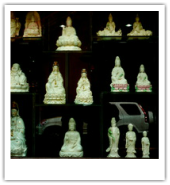 Although I mostly love the time I have in Rome, I often find myself reminiscing about my motherland. Anyone who knows me well, knows that regardless of where I am, I have a bit of a restless streak that not even a fulfilling life seems to cure for very long. When these restless periods arise, I find myself thinking of the things that I don't like about wherever it is that I am. And then mentally juggling them with the things that I do. Invariably, the dichotomy doesn't really resolve anything. If anything, it becomes a bit of a way to pass the time. Like many people here, one of my major issues is that Italy has major problems with transparency. In Australia recently, political coverage shed light on the faceless men behind the political parties and how they inevitably steered much of the direction the parties were taking. In Italy, I think it is fair to say that the society is mostly steered by the faceless. There is a sense of helplessness here when compared to other Western and Northern European countries where freedoms and transparencies are almost a given. In comparison to other nations, the freedom of the press here is limited and highly stratified, steps are being taken slowly to weed out nepotism which is endemic and nero, which is basically like the black market has created a sub economy with its own set of unwritten rules and etiquette. Professional guilds control sectors and pricing and are incredibly influential and powerful, as are the splinters of labour unions who seemed to be involved in a revolving run of strikes and public campaigns in protest against the country's substandard wages, austerity measures and the imbalance between political and individual power. Italy modernised in the 1950s after being decimated in the second world war, and has experienced varying degrees of acculturation and economic prowess in the decades that have followed, but since the 1990s has been in a slump in comparison to most of its neighbours. I recently spent a few days in Shanghai, a place I had not visited for about five or six years. Revisiting, I noticed there were a few more skyscrapers than I remembered, that the place seemed less like the dusty western frontier I remembered it being back in 2005. Click on READ MORE to continue reading the post...  We shouldn't seek out to champion people who don't want to champion themselves. But I can't help it! This week, roving around Rome with my ipod on shuffle, I have fallen back in love with Natalie Imbruglia. Again! Nat was originally a soapie star in Australia. That should normally preclude her from being someone worth considering as substantial, or for someone to go into bat for. But no. She seemed to rather effortlessly overcome her past almost instantly. Her first single was a cover version. By technical standards not a recommended way to go about kicking off a music career. But when said cover version is the brilliant Torn you have to give in. Nat's first album was a monster. A huge international phenomenon. Left of The Middle was mostly co-written by Nat, who, arrived on the music scene years after her last episodes of Neighbours had been screened in the UK or Australia, making it seem like a logical, thoughtful career transition, rather than simply jumping on the bandwagon. Natalie also resisted the temptation to go into a dance-pop direction, instead producing something that at least seemed indie inspired, even when it could sometimes verge on the middle of the road rather than the left to the middle. Although from 1997 through to 1999 the singles from Left of the Middle and that beautiful face seemed to be EVERYWHERE, Natalie took her time following up her first album, and when she eventually did, some four years later with White Lilies Island, we got more of the same earthy, soulful pop rock that she had done the first time around, but without the bubbles and the bite. Her slow working ethic impacted on the success of her album a little, as did the more midtempo feel of the album. The beginnings of her squandering her own efforts seemed to set in place. That said, That Day and Wrong Impression received some deserved airplay, but a better idea of what could be found on the sophomore album was Beauty On The Fire. Nice, atmospheric, even if it was nowhere near as good as her first album material, like Smoke. The quality of the material was sufficient to keep her stocks high, if not at the same stratospheric level that she burst onto the music scene with. Her seemingly enviable relationship with Daniel Johns, her natural beauty, and that built in element of cool which she seemed to just naturally exude all contributed to a very warm reception another FOUR years later (detect the pattern?) to Shiver definitely her greatest single to date (okay, her greatest song to date), but the reception to the album, which was yet more restrained than her second album was equally cooler. Whilst Shiver reinvigorated Natalie on the airwaves, she never capatalised on it again. The material on Counting Down the Days, the parent album just didn't have anything as lush, atmospheric and rivetting as its lead single. Natalie seemed to resume her career as a social scene IT girl, and even the eventual release of her greatest hits album, with the shiny, effervescent Glorious seemed a little like an afterthought, even if it came too prematurely, after all, she had only made three albums, albeit over 12 years. Oh but wait. Another four years after Counting Down The DaysNat came back with Come to Life; newly seperated from Johns (they had been my celebrity touch stone couple :( ), and back intoa new pop world and market that she hadn't had success in for years. The album's commercial failure belies some quite good tracks, but one gets the sense that Natalie never really kept up her end of the bargain; with so much goodwill, she seemed to give up on the fight from the outset with her low output in a fast moving world of music, and that's a shame, because, is she herself was fighting the fight, imagine the potential of the songs she might still be recording now after those that she has already delivered. 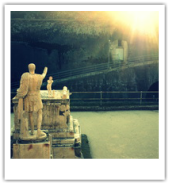 l recently took a weekend trip down to Naples, the second in a few months. In a general sense, Italians are divided on their opinions about Naples. On the one hand there are a lot of people, particularly Romans and those from the south who are affectionate towards Naples. In the other camp are those who would quite literally like to see it removed from the map. Those who have a fondness for the city often cite the immense contributions Napolitan culture has made to the Italian identity, particularly the Italian identity that is recognised internationally. You know, the home of pizza, the home of those dreamy old school songs by Dean Martin that your parents probably sang along to and film icons, none more so than Sofia Loren who was born in one of the adjoining towns that sit at Naples' outskirts. We also, by proxy have the iconic Mt. Vesuvius and Pompeii and Herculaneum to attribute to the worldwide contribution Naples has made to both history and culture. A visit to Naples and it surrounds will no doubt conjure up these kinds of images, its food is widely appreciated as among the best in Italy, and its people are often down to earth, friendly and warm. But, like so many things, Naples harbours a flipside. It's a city that is irrefutably in decline, and has been for decades. There have been moments in its recent past when it seemed as if it was ready to breakthrough the shackles of its past, to overcome all of the negativity and negative stereotypes which it had also actively contributed to the worldwide understanding of Italian culture. Organised crime, flagrant disregard to the environment, petty crime and high levels of unemployment paint the other picture of modern Italian culture, and Naples like it or not is synonymous with this negative aspect of modern Italian culture, true or not. When you visit Naples, you notice how different the people are. Not just in their heady looks; the mix of Arabic, ancient Greek and Spanish influence and heritage courses through their DNA and has created a beautiful mix of people. But Naples is a place of exaggeration; extremes are exaggerated, fashions are cranked up to the highest degree and the absurdity of seeing a city all but collapsing around its inhabitants leaves a mark. Why? Who can say for sure? Perhaps there is something to living at the base of an active volcano, or perhaps its simply the price of a connurbation that is so densely populated that it compares with Hong Kong in population density. Or maybe its because the city's fortunes have changed so significantly over the centuries that people are never left with some security should be normal in a city like this. The schizophrenic nature of city meeting natural surroundings might have a hand in this too. When you consider that Rome is probably the only city in Italy with a comparable history or multiple personality disorder, its so interesting to see how both the people and the surroundings are so different from each other within the space of a two and a half hour drive. Naples fascinates me. I want to know more about it. Right now, what I do know, is that the city excites and inspires me when I visit it, and leaves me with a sadness and disbelief when I leave it because I haven't yet unravelled why things are the way they are there. |
Dave
|
|
|
Dave Di Vito is a writer, teacher and former curator.He's also the author of the Vinyl Tiger series and Replace The Sky.
For information about upcoming writing projects subscribe to the mailing list. Dave hates SPAM so he won't trouble you with any of his own. He promises. |

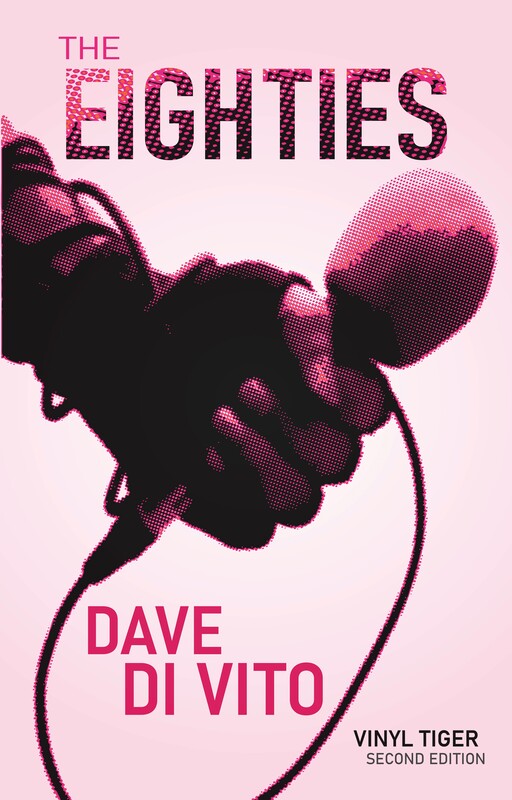
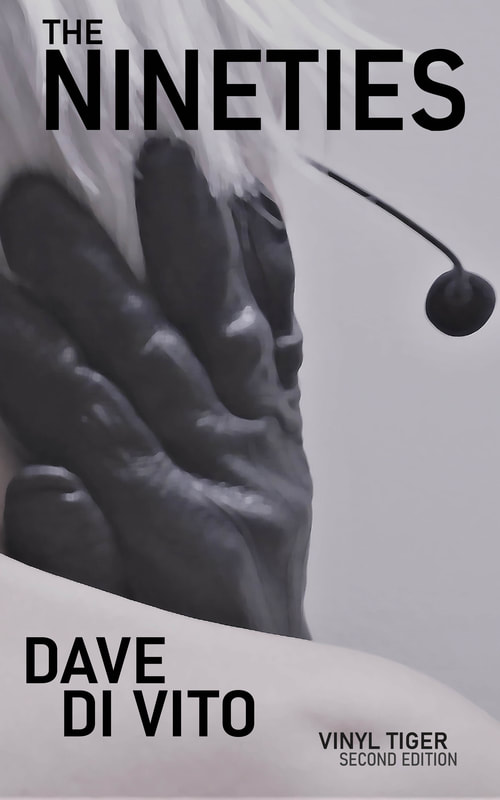
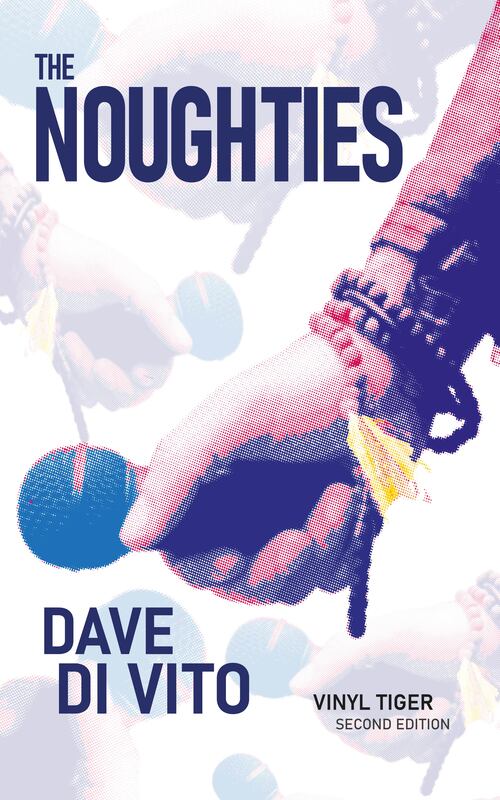
 RSS Feed
RSS Feed